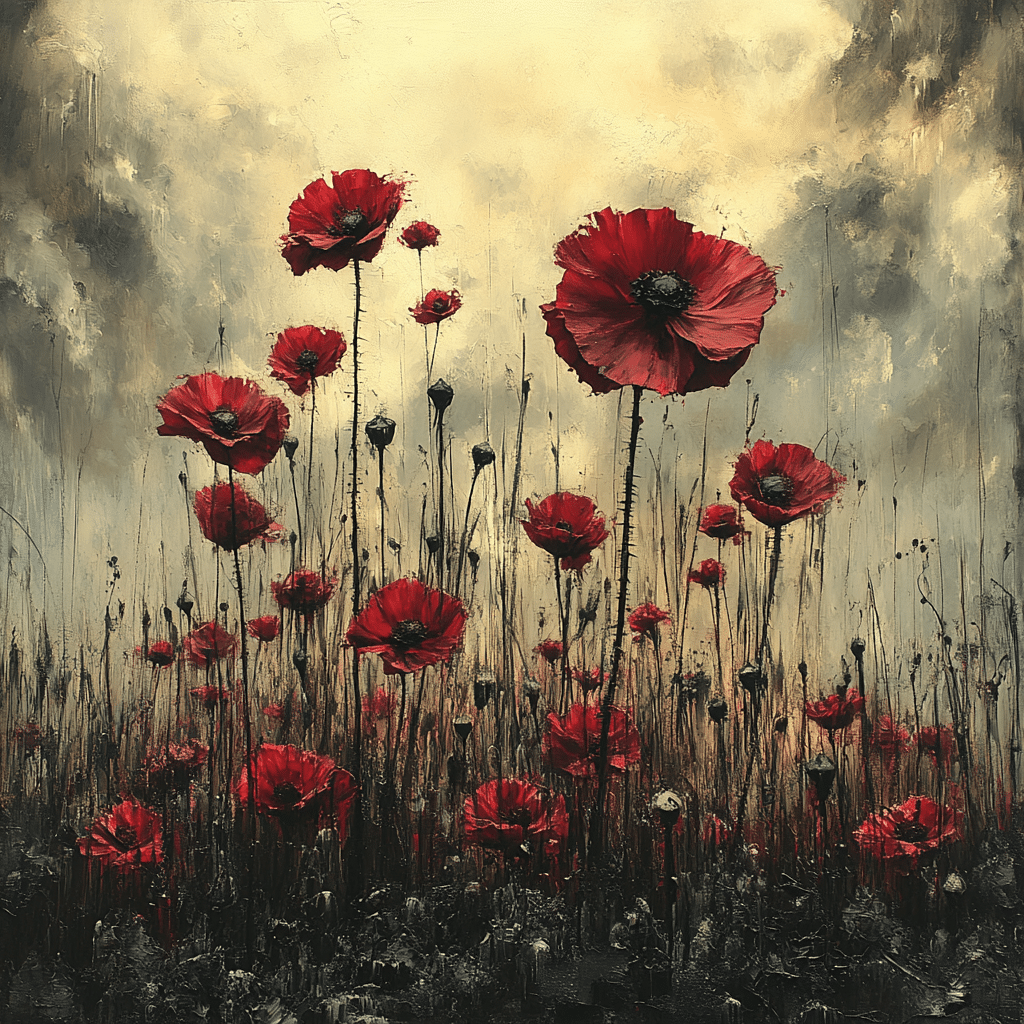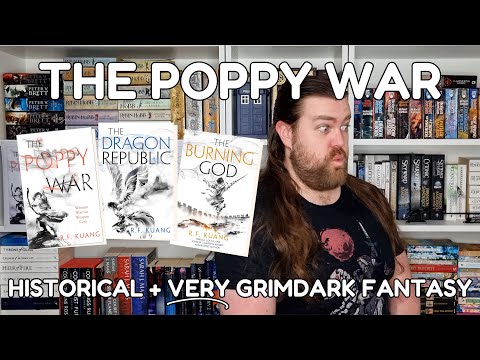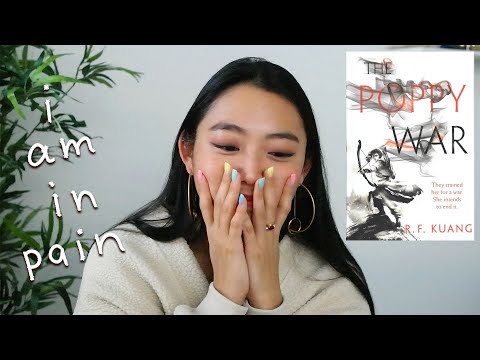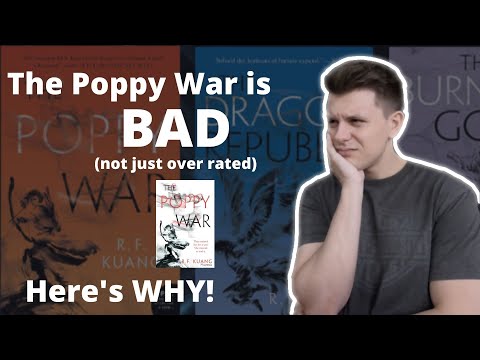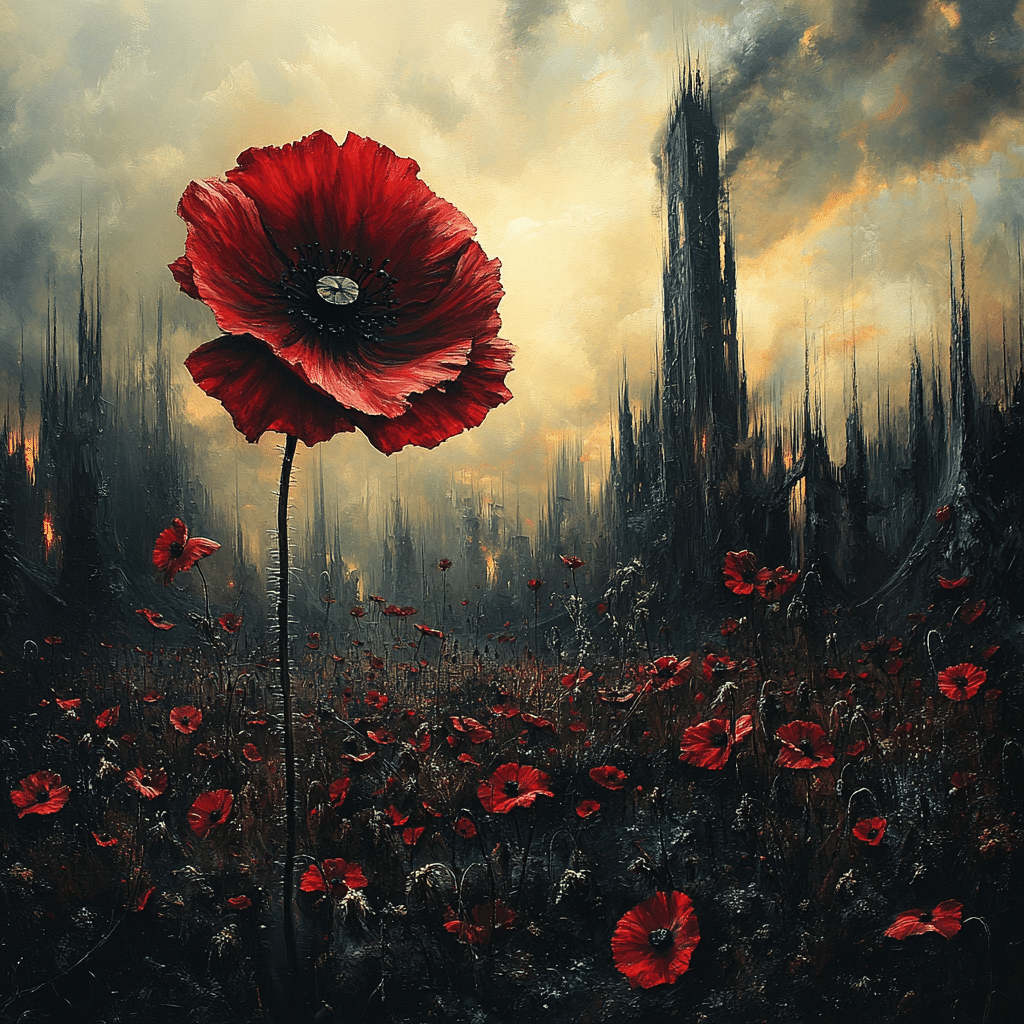
The Poppy War saga, a riveting blend of fantasy and historical allegory, has captivated readers and viewers alike by navigating through profound themes of power, trauma, and identity. Set against a backdrop reminiscent of real historical conflicts, this narrative resonates with current global issues, compelling us to reflect on the cyclical nature of human struggles. As we peel back the layers of this epic tale, we uncover how it weaves a rich tapestry of human experiences that echo today’s societal challenges.
7 Powerful Themes in The Poppy War
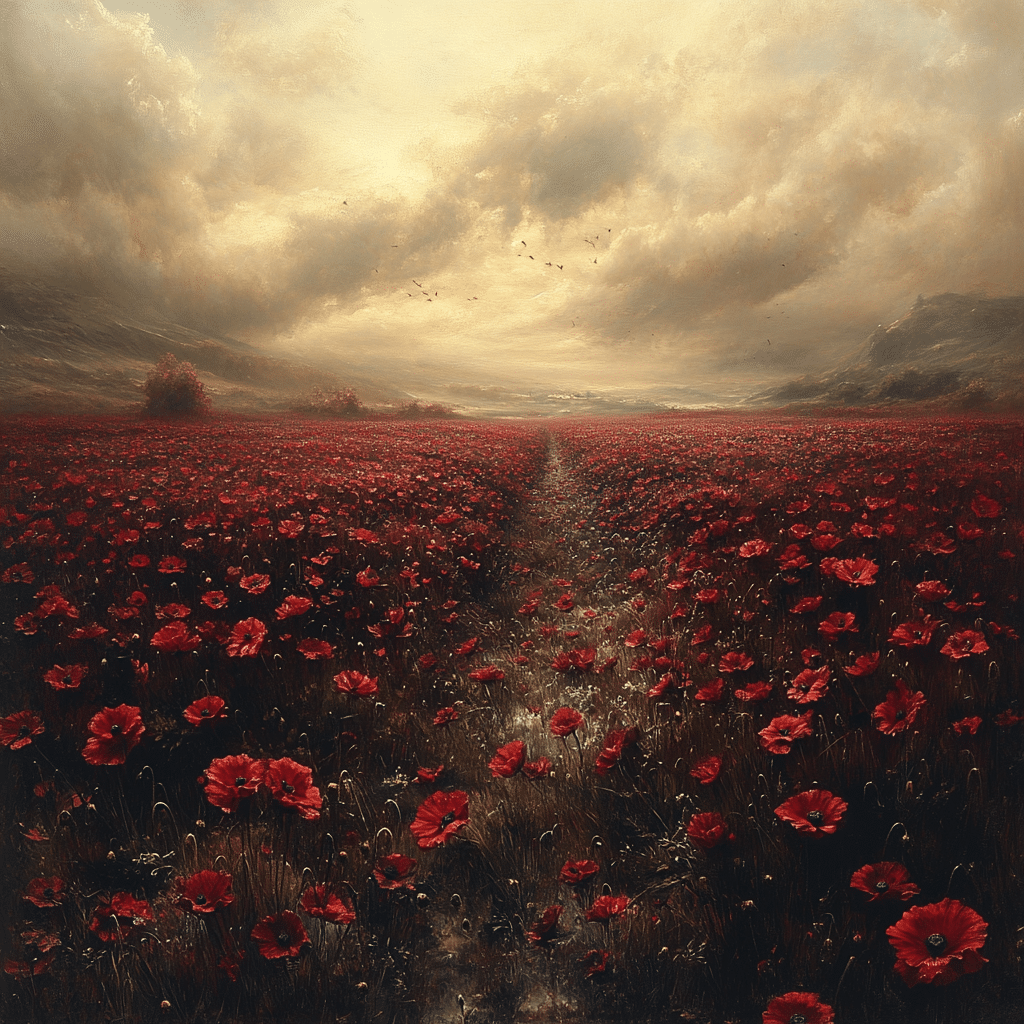
1. War and Its Aftermath
The Poppy War doesn’t shy away from showcasing the harsh realities of war. It paints a vivid picture of destruction and suffering, much like the accounts of conflicts that have shaped our world. The relentless devastation experienced by characters mirrors today’s ongoing struggles, making it timely and relevant. As readers delve deeper, they find themselves grappling with the haunting echoes of history that come alive within the pages.
2. The Consequences of Power
Power dynamics serve as a heartbeat in The Poppy War. The rise of the protagonist, Rin, captures the essence of ambition and its dark side. Her transformation into a formidable force illustrates how the pursuit of power can corrupt even the most well-intentioned individuals. This theme resonates strongly within today’s political climate, sparking dialogues around leadership and the intricate web of governance.
3. Cultural Identity and Rebirth
Rin’s journey is a compelling exploration of self-acceptance and cultural identity. Much like societies that seek to find themselves amidst the wreckage of war, her story reflects a universal yearning for rebirth. As communities strive to reclaim their heritage, readers can’t help but see Rin’s evolution as a mirror to contemporary movements advocating for cultural recognition and respect.
4. The Complexity of Morality
The narrative blurs the lines between good and evil, inviting readers to confront uncomfortable realities. Rin’s choices create a moral labyrinth that challenges traditional understandings of heroism. With characters who embody shades of gray, the saga prompts a deep rethink of what it means to be a hero or a villain, reflecting the multifaceted nature of real-life figures who’ve shaped history.
5. Magic as a Metaphor for Power
Shamanic magic features prominently in The Poppy War, acting as an allegory for the forces that shape the world. As characters wield power through magical means, readers witness how ambition can manifest itself in tangible forms. This theme echoes modern discussions about emerging technologies, like Disney Magic bands, which, while seemingly benign, raise questions about control and influence.
6. Survivorship and Trauma
Rin’s battles are not just against external foes but internal demons as well. The saga poignantly addresses the scars of trauma and the impact of PTSD on both soldiers and civilians. Through Rin’s experiences, the narrative connects with current conversations around mental health, particularly for veterans. It highlights the narrative’s role in healing, emphasizing how storytelling can be a powerful tool for grief and recovery.
7. Community and Solidarity
In times of despair, community becomes a refuge. The Poppy War exhibits how relationships forged in crisis can lead to profound alliances. Whether among soldiers or across cultural divides, the bonds formed amidst hardship serve as a reassuring reminder of our humanity. The saga shows that unity, particularly in a fractured world, can illuminate paths toward healing and hope.
Celebrity Influences: The Poppy War and Pop Culture
The Poppy War’s influence stretches far beyond the pages of the books and into the broader fabric of pop culture. Take actress Moon Bloodgood, known for her profound respect for narratives that delve into complex psychological landscapes. She often champions stories rich in moral ambiguity, much like those found in The Poppy War. Influencers like her bridge the gap between literature and screen, ensuring these narratives find new life across various mediums.
Similarly, shows like Lizard Lick Towing tap into themes of redemption and personal growth, reflecting the undercurrents present in Rin’s journey. While the reality show shines a light on unconventional livelihoods, it also showcases humanity’s resilience, reminiscent of Rin’s struggles and triumphs. This intersection of life and fiction amplifies the saga’s reach and impact.
In the art world, the imagery linked with Moonrock and its vibrant streetwear culture resonates powerfully with themes of identity. The culture encapsulates the essence of fighting against societal norms, much like Rin’s quest for self-identity and recognition. The overlap of these artistic expressions illustrates how themes from The Poppy War inspire diverse creators.
Intersections with Modern Gaming
Modern gaming also reflects the themes echoed in The Poppy War. The legendary Rebirth Island serves as a battlefield where players face moral choices and survival challenges akin to Rin’s own trials. Gamers constantly navigate decisions that test their ethics, mirroring the emotional and moral complexities embedded in the narrative. This dynamic interaction not only reinforces the story’s themes but also encourages younger audiences to engage with serious discussions on power and morality through play.
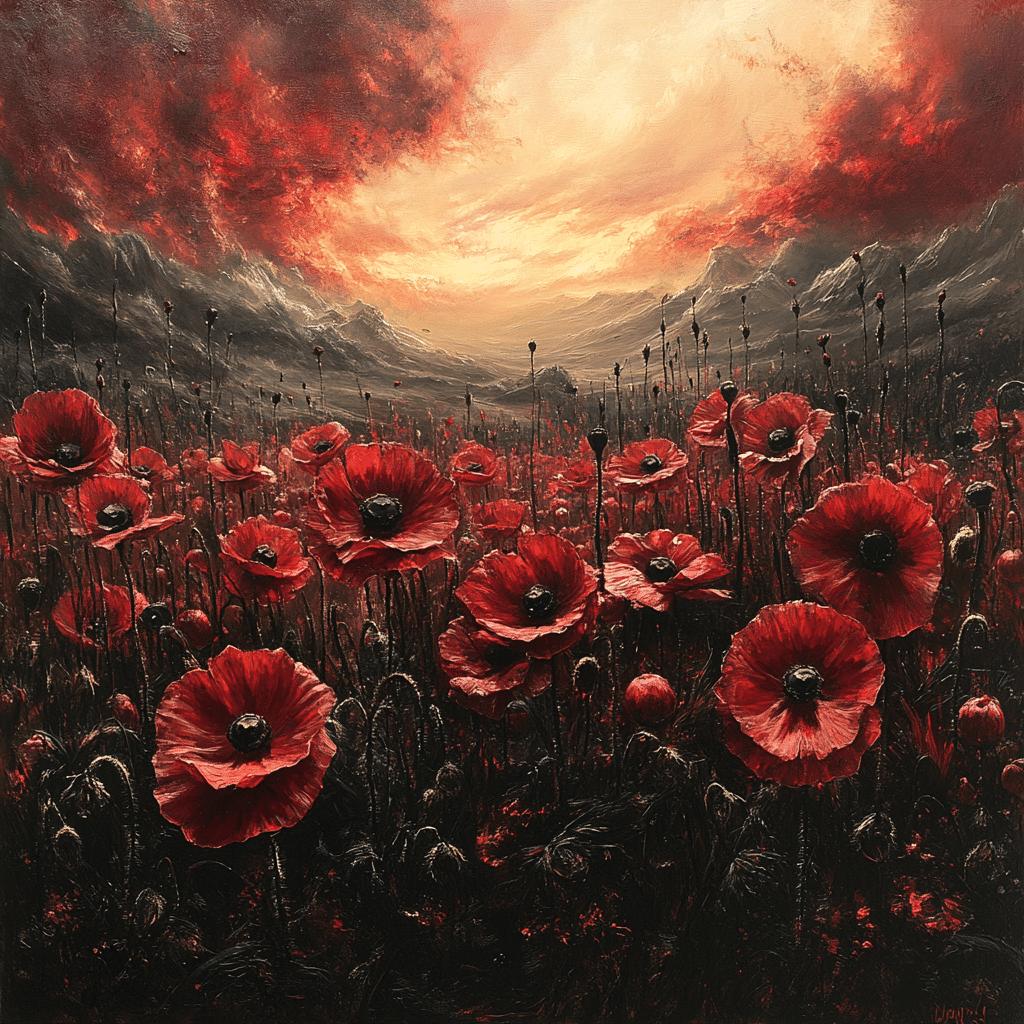
Innovating Perspectives
As we connect the threads between literature, film, and gaming, The Poppy War reveals its vast cultural footprint. Its exploration of power dynamics and personal redemption resonates across genres, providing valuable insights into contemporary society. The conversations ignited by this saga invite both reflection and engagement, encouraging audiences to seek understanding in a world rife with division and conflict.
In these trying times, the messages inherent in The Poppy War remind us of essential truths about humanity. They urge us to face our stories honestly, engage in courageous dialogues, and pursue pathways to healing and redemption. As we navigate through life’s trials, narratives like Rin’s become more than just entertainment; they become mirrors reflecting our struggles, hopes, and humanity’s endless quest for connection.
Through The Poppy War, we find not just solace but incentive to unite, understand, and ultimately redefine what it means to wield power responsibly. In a time of constant change, these discussions about cultural identity, trauma, and community solidarity feel more critical than ever, ensuring that this saga will resonate for generations to come.
The Poppy War: A Saga of Power and Redemption
Fascinating Facts About The Poppy War
Did you know that The Poppy War series, inspired by China’s history, delves deep into themes of war, redemption, and the consequences of power? This gripping trilogy showcases how personal and national histories are often intertwined, reflecting how even small actions can ripple outwards with devastating effects. In a way, it echoes the vibrant chaos of the Catalina Wine mixer, where the convergence of various elements creates a whirlwind of drama and excitement.
As you journey through the pages of The Poppy War, you might find yourself shocked by the brutal realities canonized within its narrative. The protagonist, Rin, is a character who embodies the struggles of those harnessing their inner strength—a theme relatable to both the cast of the movie Hair and the legends of the ’69 Summer of Love. Just like how that film’s ensemble tackled societal challenges through collective music and art, Rin must navigate her world, often facing moral dilemmas that lead her down dark paths, much like the figures in the devil Dogs documentary.
The Legacy of The Poppy War
The impact of The Poppy War goes beyond just the words on the page, sparking conversations about suffering and triumph. Fans often draw parallels between Rin’s experiences and the feeling of nostalgia that comes from cherished memories, much like the camaraderie found in a relaxed gathering, akin to the friendships cultivated in the Outer Banks voice of those carefree summer days. Readers have praised this saga for asking tough questions, similar to how students agonize over their graduation dress choices, balancing personal hopes with societal expectations.
So, whether you’re drawn to the book for its rich storytelling, or simply curious about its underlying messages, there’s plenty to discover. From the magical lore reminiscent of Haruhi to the somber yet thrilling tales etched in the sleeping village setting, The Poppy War offers a canvas that is vibrant and poignant. The story’s exploration of redemption shines a powerful light on what it means to change, grow, and ultimately confront one’s own destiny, just as many of us grapple with choices shaped by both our individual experiences and the collective history we share.
